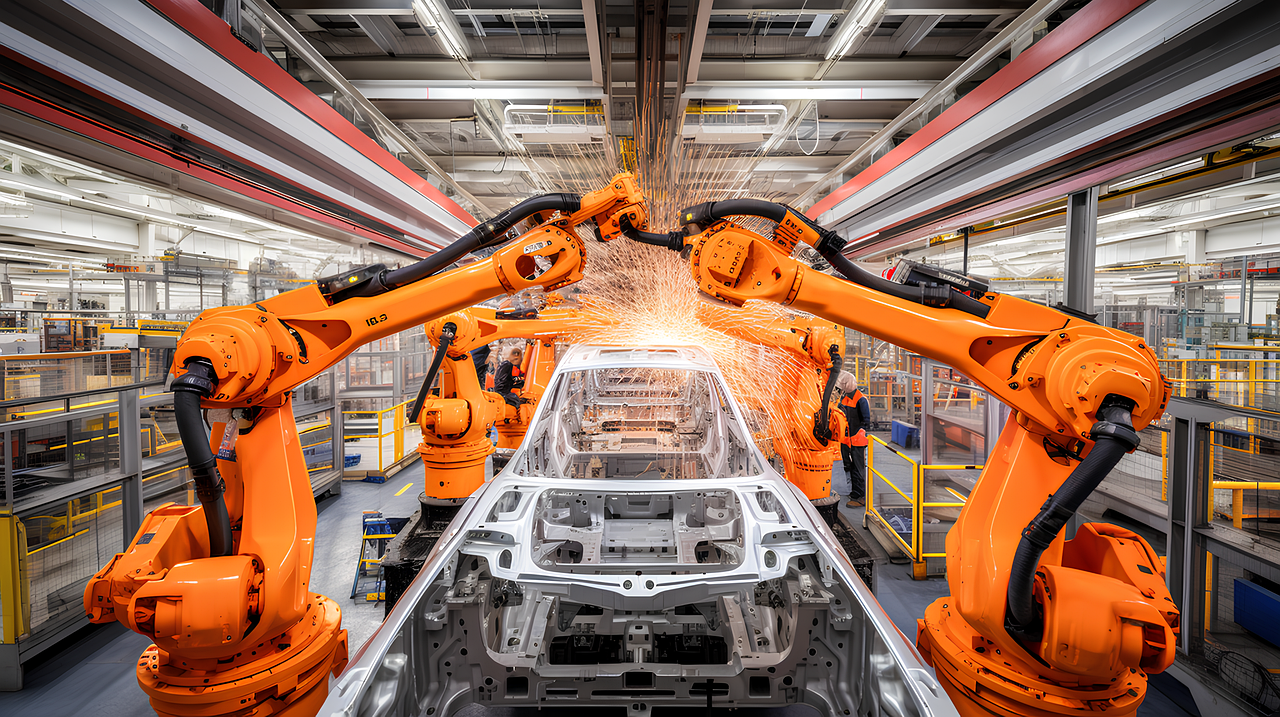NEW PARADIGM
Simon Johnson on Power and Progress – Should the State Steer Innovation?
Simon Johnson presented his and Daron Acemoglu’s book ‘Power and Progress’ at our latest New Economy Short Cut in cooperation with OECD Berlin. We have summarized the key points.
BY
SONJA HENNENPUBLISHED
21. DECEMBER 2023READING TIME
4 MIN
From improved agriculture in the Middle Ages to the Industrial Revolution and Artificial Intelligence (AI) today, technological change has been seen throughout history as a major driver of progress for the many. Two of the world’s leading economists, Daron Acemoglu and Simon Johnson, contest this view in their new book ‚Power and Progress’. While they don’t deny that technological progress has made people richer and, yes, also happier, they argue that the belief that technological inventions automatically increase prosperity, is a fallacy.
Simon Johnson presented the main arguments from the book at our latest New Economy Short Cut2 in cooperation with the OECD Berlin Centre. He was joined in conversation by ZEW president Achim Wambach and Head of OECD Berlin, Nicola Brandt.
Johnson and Acemoglu’s book is written around three central ideas. The first is that technological progress in itself is neither positive nor negative. Rather, the direction that technology takes and its impact on prosperity and jobs is a matter of (political) choice. History is replete with examples of both sides of the spectrum, Johnson argues. While the 19th and 20th century up until the 1980s have seen a rise in living standards and wages through technological advances, this trend turned into increasing polarization in the last decades.
The second central idea is the ‘productivity bandwagon’. Johnson and Acemoglu refer to this term to describe the circle of improvements in technology, which lead to productivity rises which lead to increases in the demand for labor. When technological progress goes hand in hand with a productivity bandwagon, it creates a positive prosperity dynamic.
The third idea is a question rather and perhaps the most central one: how can policy makers and society create the right conditions for a technological change that enables prosperity for many? What were the key ingredients in the past? And can we replicate them? Johnson argued that there are three central elements to this. First of all, where there is automation, it should be accompanied by new task creation. “On Henry Ford’s production lines, people were replaced by machines. But he and the managers and engineers around him created a lot of new tasks, many of which required expertise, and for the expertise they paid a premium wage.”
The second important element according to Johnson are strong trade unions and the shared prosperity model. Back in the 1930s, the unions were central in ensuring that the benefits of higher productivity in the car companies were shared with workers through higher pay and other benefits. The third element is political: ensuring that workers have equal rights and are represented in parliaments and throughout democratic institutions.
Today’s economies according to Johnson are doing less well in terms of new task creation, and unionization is at an all-time low, despite some bounce backs after the Corona pandemic. He also warned that trust in technology’s ability to bring about positive change has been severely damaged in many societies and is being exacerbated by social media.
“People think that AI is just going to make things worse. But we can learn to identify, find, and encourage the development of technologies that generate more new tasks.”
Some of this is already discussed as part of the new industrial strategy in the United States and also in Europe. For the rest of the world, Johnson warned that a mass amount of automation brought to the global economy might indeed negatively impact manufacturing in low income and middle-income countries.
"I think there's a level of trauma and difficulty awaiting us which is surely not unprecedented, but it is going to be very difficult for those countries and those people to overcome.”
Achim Wambach agreed that good institutions matter to steer technological progress, but that it could also be the other way around – innovations spurring the creation of better institutions. He also emphasized that most of the technological change today is task and skill based. Without education, polarization will be much more likely. At the same time, according to Wambach, the labor shortages in industrialised countries make it less likely that AI and digitalization will negatively impact the labor market. More problematic, according to Wambach, is Europe’s restriction of innovation through laws like the Artificial Intelligence Act or Digital Markets Act. “These acts tend to protect large firms but are a big problem for small firms. They kind of steer innovation which is already there. What you would like to have instead are institutions which steer innovations that are yet to come. When you steer innovation, there is always a risk that you stifle it.”
In the end, Simon Johnson reminded the audience that an innovative society is not so different from an innovative company. No one would expect from venture capital to be successful at every investment, every innovation. The same shouldn’t be expected from governments. They should be allowed to take risks, as complementing automation with new tasks requires a lot of new creative fast thinking and is an uphill struggle. The difference between government and business, according to Johnson, is that business is excited about technology, but not about expanding human capabilities and preventing to lay off people.
“There is a pathway where you can get more innovation, more dynamism or good job creation, more augmentation of humans. Will we find our way onto that path? I don't know, but that is what we're trying to work on.”
